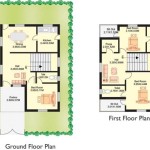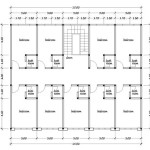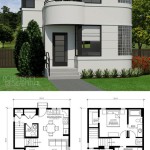Window Size On Floor Plan Revit: Essential Aspects
When it comes to architectural drafting, precision and accuracy are of paramount importance. In Revit, a popular building information modeling (BIM) software, window sizing plays a crucial role in creating realistic and functional floor plans. Understanding the essential aspects of window size on floor plan Revit is essential for professionals to produce accurate and detailed designs.
Window Element Properties
In Revit, windows are represented as elements with specific properties that define their size, shape, and other attributes. Key properties include:
- Width and Height: Determine the overall dimensions of the window opening.
- Sill Height: Specifies the distance from the floor to the bottom of the window.
- Head Height: Specifies the distance from the floor to the top of the window.
- Frame Thickness: Defines the width of the window frame.
Placement and Positioning
The placement and positioning of windows on floor plans are crucial for both aesthetic and functional considerations. Factors to consider include:
- Natural Lighting: Windows should be positioned to maximize natural light intake while minimizing glare.
- Ventilation: Windows provide necessary ventilation for occupants. Consider their placement for optimal air circulation.
- Views and Privacy: Fenster should offer desirable views while maintaining privacy for occupants.
- Building Codes: Local building codes may specify minimum window sizes and placement requirements.
Types of Windows
Revit offers a wide range of window types, each with its own unique properties. Common types include:
- Fixed: Non-operable windows that provide natural light without ventilation.
- Casement: Operable windows that swing open on a hinge at the side.
- Awning: Operable windows that open by rotating on a hinge at the top.
- Slider: Operable windows that slide horizontally or vertically.
Scheduling and Dimensioning
In Revit, windows can be scheduled and dimensioned to provide detailed information and documentation. Scheduling allows the user to create a tabular summary of window properties, while dimensioning adds measurements and annotations to the floor plan.
Best Practices
To ensure accurate and efficient window sizing in Revit, follow these best practices:
- Use Consistent Units: Ensure that all window dimensions are specified in the same units of measurement throughout the project.
- Set Default Window Sizes: Set default window sizes in the project template to streamline the design process.
- Utilize Grids and Snaps: Use grids and snaps to ensure accurate placement and alignment of windows.
- Create Custom Window Families: Create custom window families to accommodate specific design requirements.
- Review Building Codes: Familiarize yourself with local building codes and incorporate their requirements into your designs.
By understanding and applying these essential aspects of window size on floor plan Revit, professionals can create accurate, functional, and visually appealing building designs.

Windows To Display Sill And Head Height From Ground Floor Autodesk Community

14 Beginner Tips To Create A Floor Plan In Revit Design Ideas For The Built World

Windows To Display Sill And Head Height From Ground Floor Autodesk Community

Revit Floor Plan Tutorial Bim Pure Blog
Window Shows On Cut Plane Revit Forum

Revit Tutorial Dimensioning Floor Plan

Revit Floor Plan Tutorial Bim Pure Blog

How To Make Revit Include Window Sil Area In The Room Autodesk Community

Engineer Civil Revit Residentialdesign Jeffery J Jensen Wiki

Beginner Tips To Create Floor Plan In Revit Bim Pure Blog








